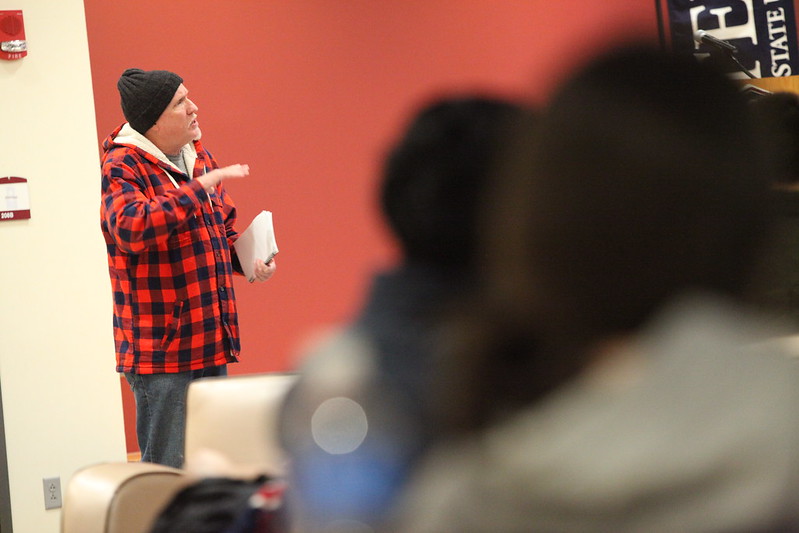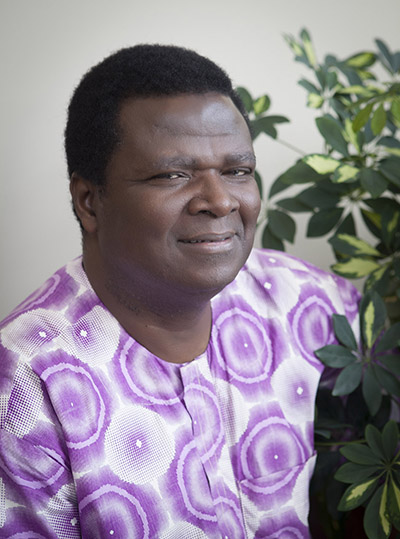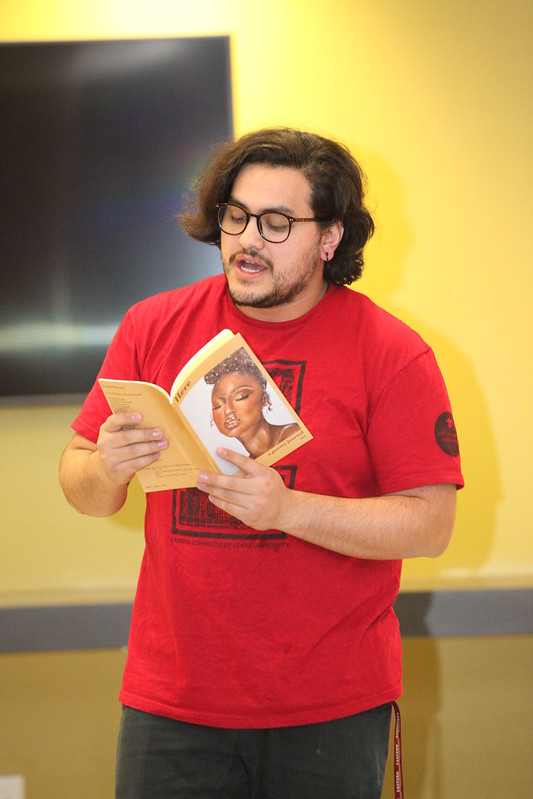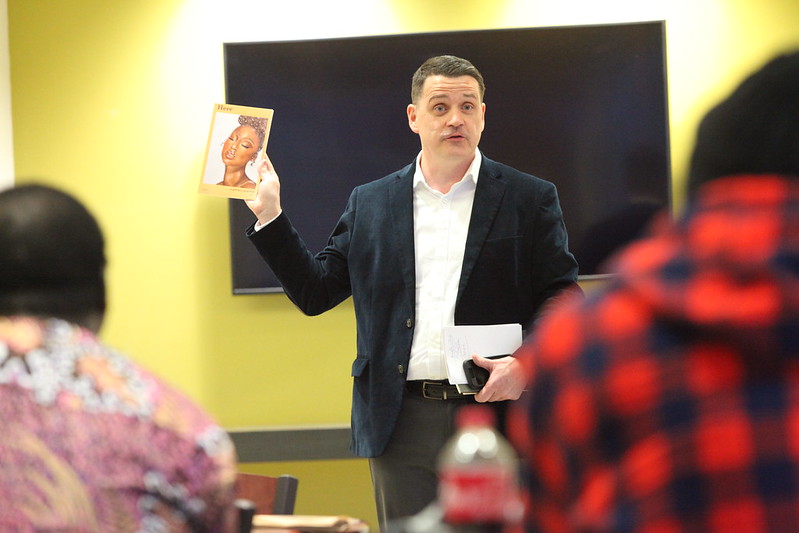- Apply
- Visit
- Request Info
- Give
Faculty authors urge student writers to voice truths
Written by Lucinda Weiss
Published on December 07, 2022

“I’m going to tell a story,” said Raouf Mama, English professor and an award-winning storyteller, during a Nov. 30 University Hour event titled “Meet Eastern’s Authors,” sponsored by the Intercultural Center and Book Club.

And tell it he did, in dramatic fashion, leading the student audience in a call-and-response and acting out the story of a mother mouse challenging a fat cat who was threatening her offspring. The mouse mimicked a dog’s bark, scaring the fearsome cat (“with sharp teeth and sharp claws,” Mama gestured) into skulking away.
The moral of the story, Mama said, was that “the best antidote to violence and prejudice is education and communication.”
The author talk was dedicated to the theme of diversity, inclusion and equity.
Fourth-year student Samuel Perez Lopez, a contributor to the latest issue of “Here,” a poetry journal published at Eastern, read his poem, “Protest of Monarchs,” inspired by a protest in which he and others dressed as monarch butterflies, a symbol of immigration, to protest criminalizing immigrants.

"Because we are the Monarchs that you hear about,
Forever migrating into our dreams,
As we fight and take flight to make them our reality," he read.
Daniel Donaghy, professor of English who co-edited with Mama the current issue of Here told the students that he had no use for poetry when he was a high school student in inner-city Philadelphia. Then, as a 10th grader, he heard the poet Etheridge Knight, whose debut book in 1968, “Poems from Prison,” inspired him.
“The most powerful stories we have are the ones pushed through the margins,” said Donaghy, who has since won numerous poetry awards himself, including the Paterson Poetry Prize.
He read from “Tulsa Triptych,” his new poem based on the Tulsa massacre of 1921, when a prospering Black section of the city of Tulsa, OK, was destroyed and its residents slaughtered. The basis of his work now, Donaghy said, is to shine a light on stories like this, which are often erased from our history.

“Let’s know it and find words for it and deal with it,” he said.
Poet Brent Terry, a lecturer in English who teaches creative writing, told the audience that “our first job is to witness—to recognize the truth and turn it into art, something beautiful. We do this literary origami, and hand it back,” he said. Otherwise, he said, the truth can be lost. Terry, the author of several collections of poetry, won the 2017 Connecticut Poetry Prize.
The good news, he said, is that literature is becoming more diverse. But, he lamented, “What have we missed? How many Shakespeares? Because people weren’t allowed to speak.”
He urged the students to keep busy telling the truth. “Keep writing. Everything you write is a journey toward the truth,” he said.


